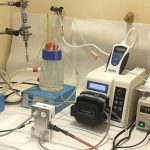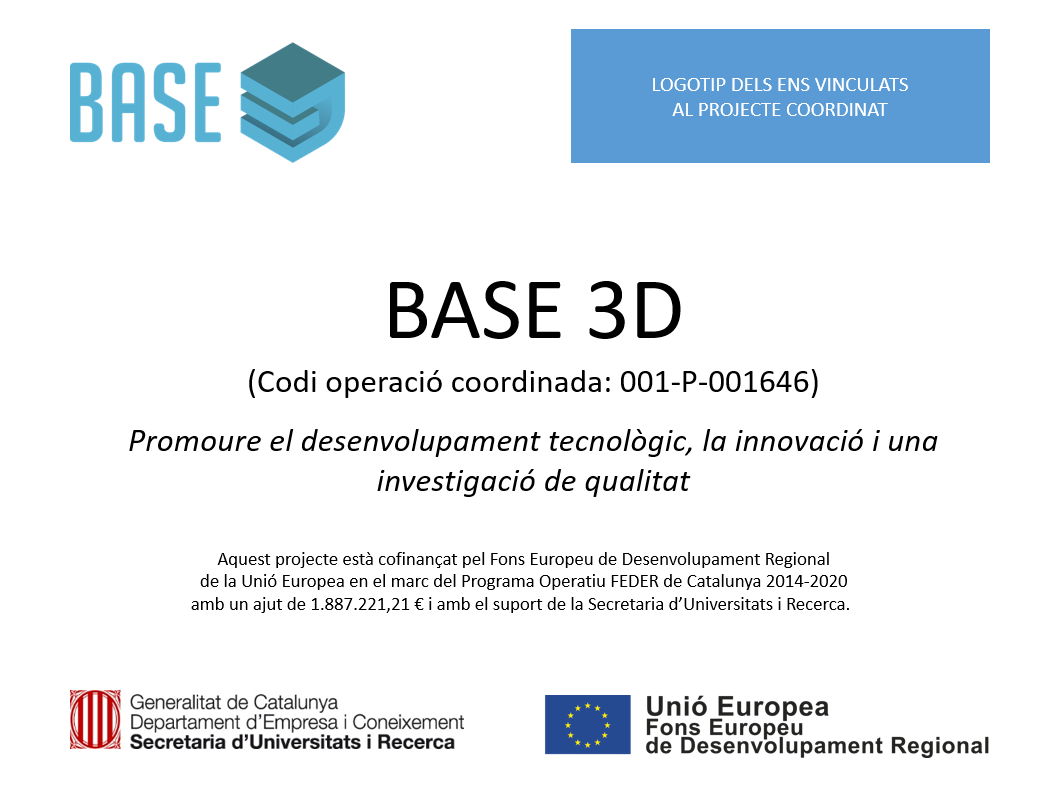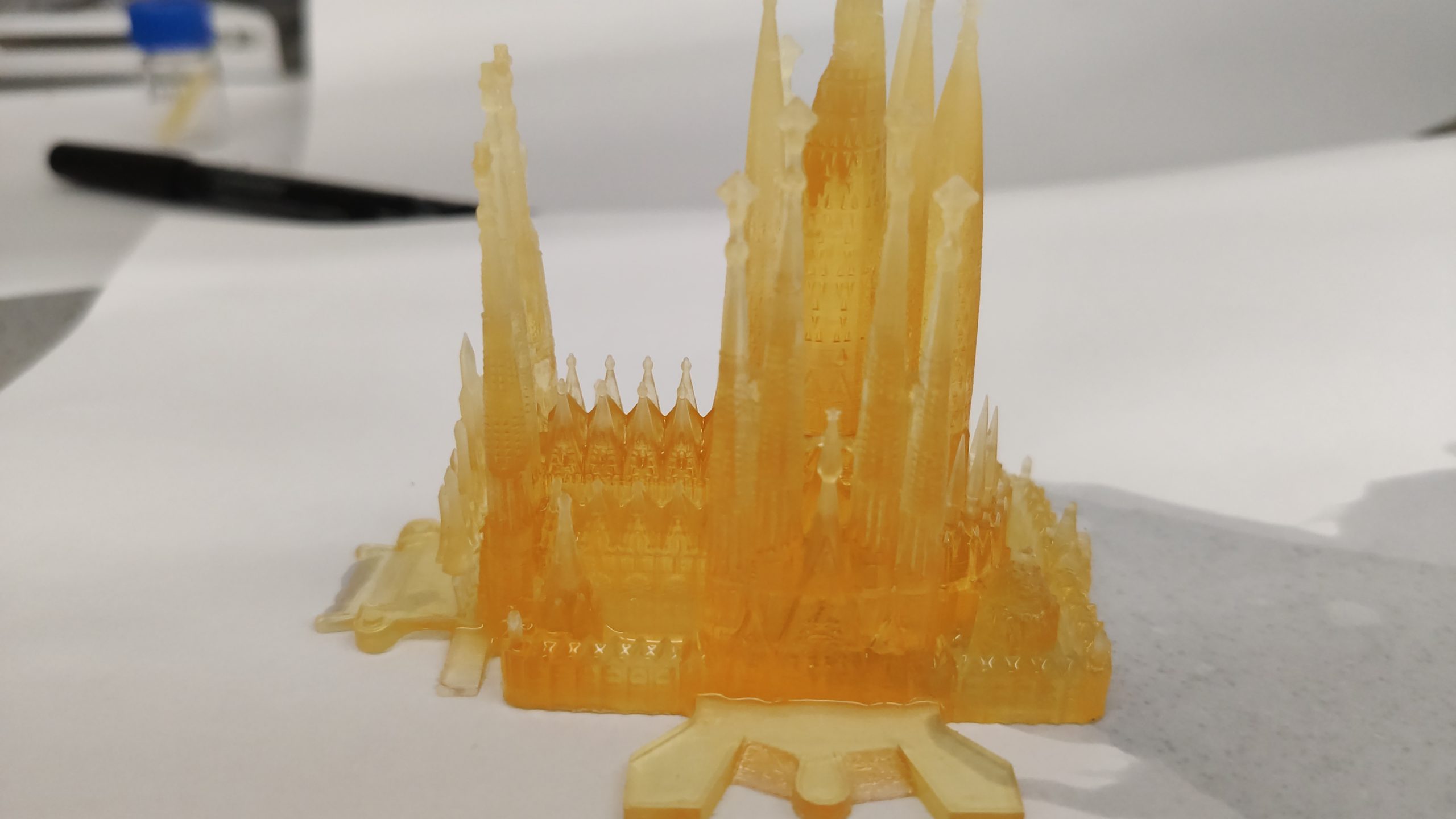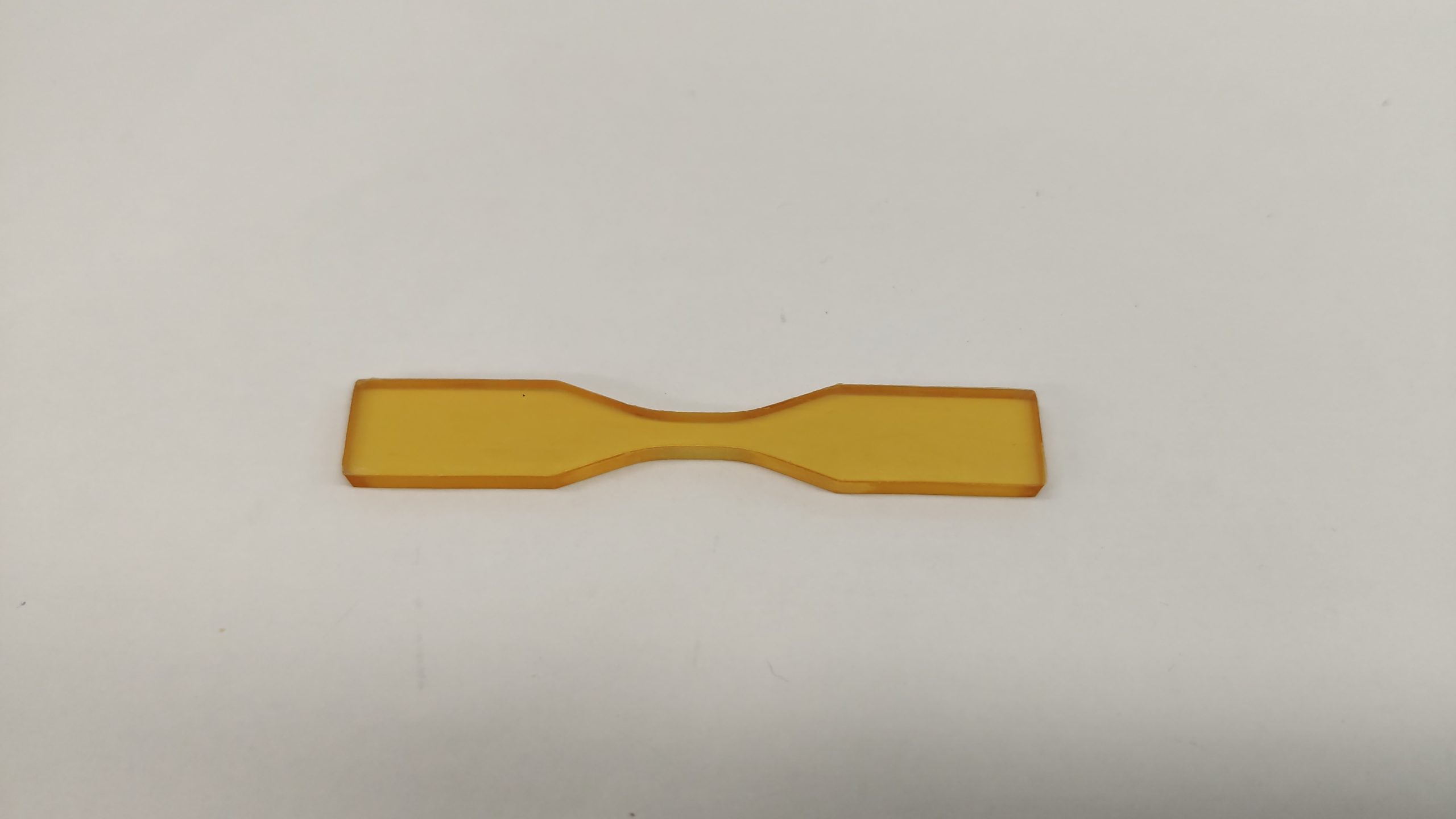
FIREPRIME: Tools and Services to Improve Wildfire Safety and Prevention in Europe
May 20, 2025
WhATTer: Green hydrogen from wastewater: energy and water circularity in the textile industry
May 30, 202523/05/2025
The Innovation in Materials and Molecular Engineering – Biomaterials for Regenerative Therapies (IMEM-BRT) research group at the Universitat Politècnica de Catalunya – BarcelonaTech (UPC), in collaboration with the Institute of Chemical Research of Catalonia (ICIQ), has developed polymer resins derived from plant-based materials to reduce the dependence of 3D printing on fossil fuel-based resins.
The 3D printing industry is currently undergoing a key transformation towards more sustainable and environmentally responsible production models. One of the main challenges is to replace widely used fossil-based resins with renewable alternatives that maintain the technical performance required for light-based printing processes, such as rapid photopolymerisation with good mechanical stability of printed prototypes.
Polymeric resins have been among the most commonly used materials since the early days of 3D printing, especially in technologies that use light to solidify them, such as digital light processing (DLP) printing techniques. These resins are formed from liquid compounds, called monomers and oligomers, which become solid through polymerisation under ultraviolet (UV) or visible (vis) light. While other 3D printing techniques, such as Fused Deposition Modelling (FDM), already use more sustainable materials like PLA (made from corn starch), replacing the starting materials in DLP printing is more challenging. Producing resins with natural components is complex, as these raw materials must support polymerisation reactions (the chemical process that turns them into plastic) in a liquid, solvent-free state.
In this context, new 3D polymer resins have been developed using monomers sourced from various natural origins, such as succinic acid, malic acid, and tartaric acid, which can be found in foods like corn, broccoli, apples, and grapes. The aim of the project is to promote additive manufacturing technologies through a process of technological maturation and to foster the implementation of this technology within the Catalan plastic prototype manufacturing industry.
The research was conducted in two phases. In the first phase, led by IMEM-BRT, the polymer resin was prepared using plant-based materials suitable for 3D printing. Subsequently, the ICIQ's Knowledge and Technology Transfer and Industrial Projects division (ICIQ-KTT) carried out the printing of the resin.
For light-based 3D printing, liquid, solvent-free resins with good polymerisation kinetics (i.e. how fast the polymerisation reaction occurs and what chemical steps are involved) are required to ensure industrial viability. These monomers enable the synthesis of functional resins in a single step, which can be used in digital light processing (DLP) or stereolithography (SLA) printers.
Using this approach, the researchers were able to produce resins containing up to 50% plant-based content, and the printed parts demonstrated good structural stability and a high rate of biodegradability. However, to ensure the necessary polymerisation properties and mechanical stability, it was necessary to combine these natural components with petroleum-derived co-monomers. Some early formulations, particularly those based on malic and tartaric acids, exhibited thermal fragility. For this reason, the team opted to focus on more robust combinations, prioritising the use of succinic acid.
Impact
This initiative contributes to the transition towards a circular, low-carbon economy by reducing the use of fossil resources and promoting the use of renewable raw materials in the additive manufacturing sector. The developed resins offer a viable alternative for producing 3D parts with suitable properties for industrial, medical, and educational applications, thereby supporting the adoption of eco-friendly solutions in real-world settings.
Partners and Funding
This is the second type of polymer resin developed by ICIQ and UPC within the Base3D project, under the Light3D cluster, led by LEITAT. The first was a biodegradable polymer that enabled high-performance printing using DLP printers.
The IMEM-BRT group is part of the UPC’s Centre for Research in Multiscale Science and Engineering (CCEM), which is recognised as a María de Maeztu Unit of Excellence. The group currently operates a 3D printing laboratory equipped with printers for Fused Deposition Modelling (FDM), hydrogel and bio-ink extrusion, and resin polymerisation using UV light curing at adjustable wavelengths of 365 nm, 395 nm, and 405 nm.
The project was part of the Base-3D Project (001-P-001646), led by CIM UPC and co-funded by the European Regional Development Fund (ERDF) under the Catalonia ERDF Operational Programme 2014–2020. It had a budget of €3,774,442.41 and ran for 36 months (2020–2022).

Sector
Topic
You want to know more?
Related Projects
- The Image and Video Processing Group (GPI), part of the IDEAI-UPC research group, and the Digital Culture and Creative Technologies Research Group (DiCode) from the Image Processing and Multimedia Technology Center (CITM) at the Universitat Politècnica de Catalunya – BarcelonaTech (UPC), have co-organised the AI and Music Festival (S+T+ARTS) together with Sónar+D and Betevé, to explore the creative use of artificial intelligence in music.
- The Visualisation, Virtual Reality and Graphic Interaction Research Group (ViRVIG) at the Universitat Politècnica de Catalunya - BarcelonaTech (UPC) has participated in the XR4ED project, an initiative that connects the educational technology (EdTech) and Extended Reality (XR) sectors, with the aim of transforming learning and training across Europe.
- The inLab FIB at the UPC has collaborated with Lizcore® for the development of a proof of concept based on artificial intelligence to improve safety in climbing with autobelay devices. The system allows the automatic and accurate detection of risk situations before starting a route.
- Researchers from the Centre for Image and Multimedia Technology of the UPC (CITM) and from the DiCode research group (Digital Culture and Creative Technologies Research Group) of the Universitat Politècnica de Catalunya – BarcelonaTech (UPC) have worked on the project The Eyes of History, an initiative of the Catalan Agency for Cultural Heritage that offers an immersive view of Catalan cultural heritage. It is especially aimed at the first and second cycles of secondary education and was created to bring heritage into the classroom. Its goal is to bring the history and monuments of Catalonia closer in a vivid and innovative way, using tools such as virtual reality and new museographic narratives.






